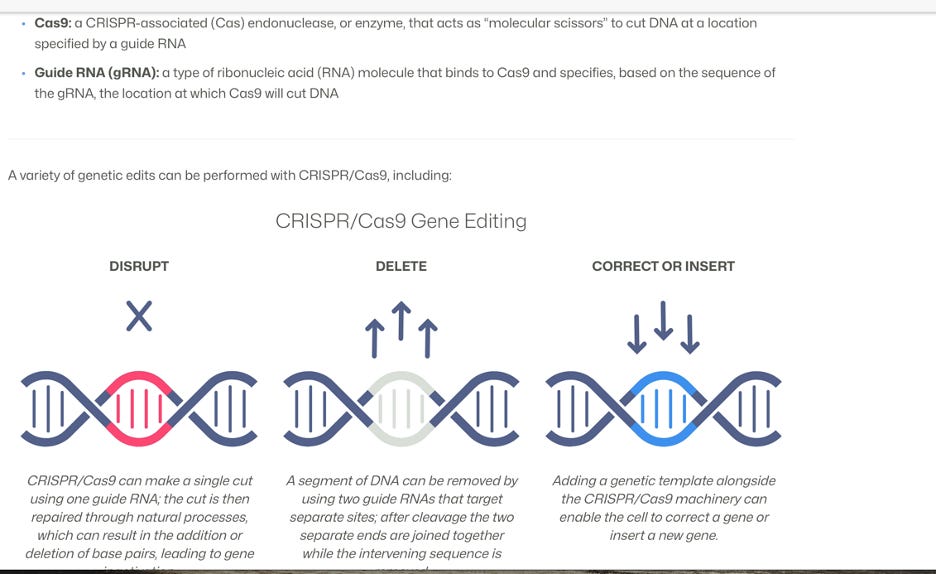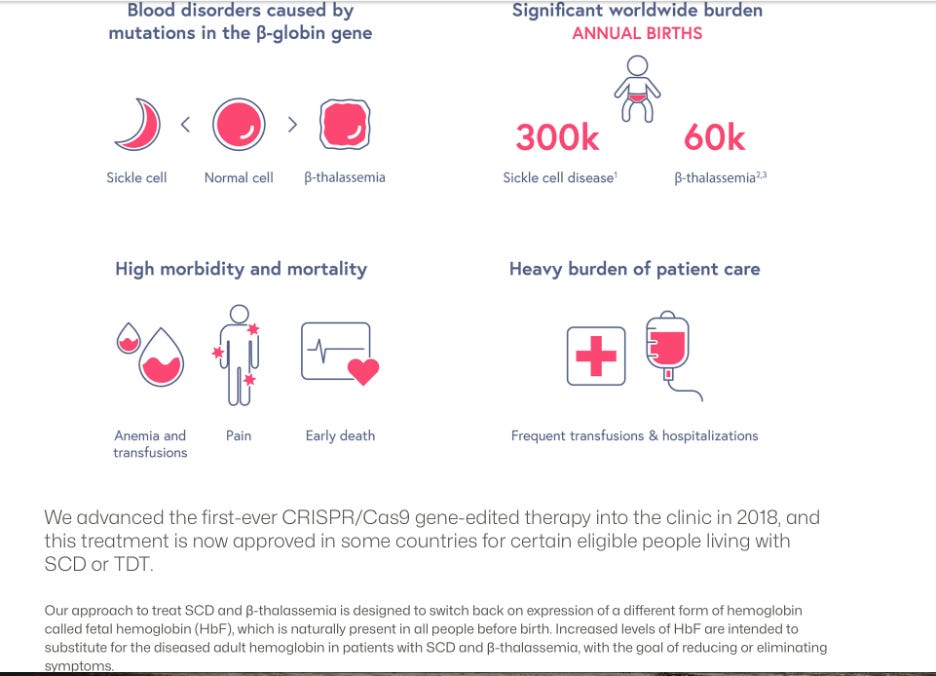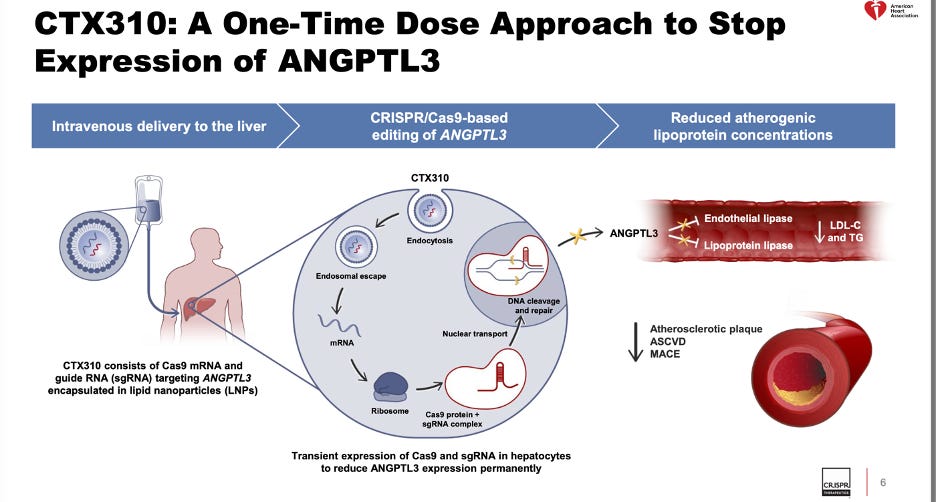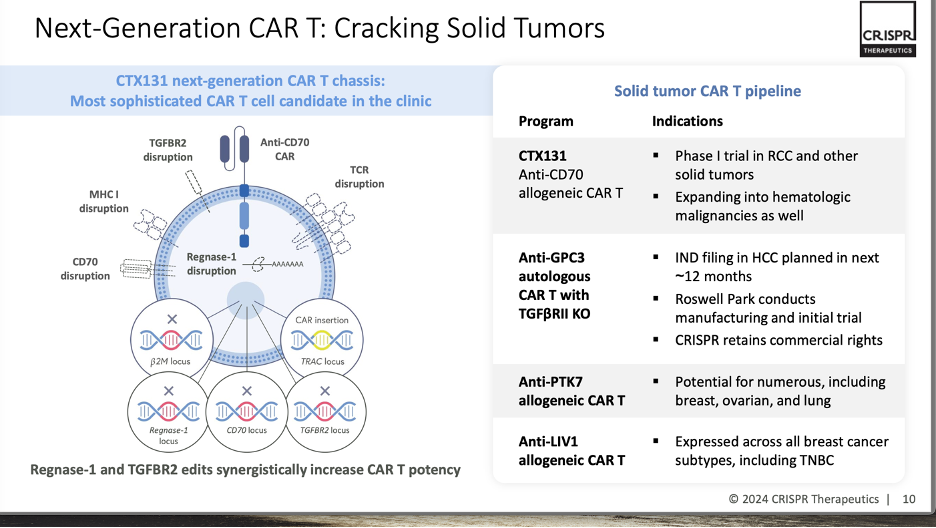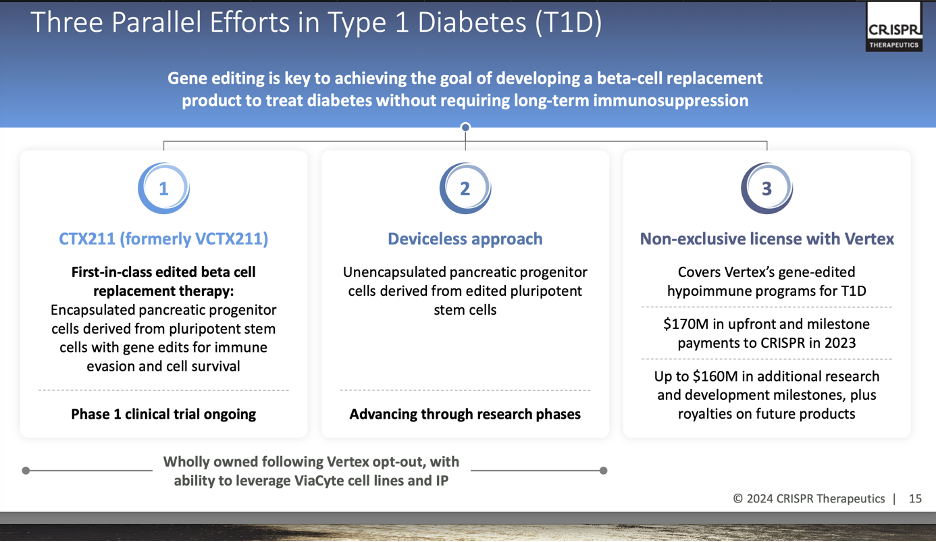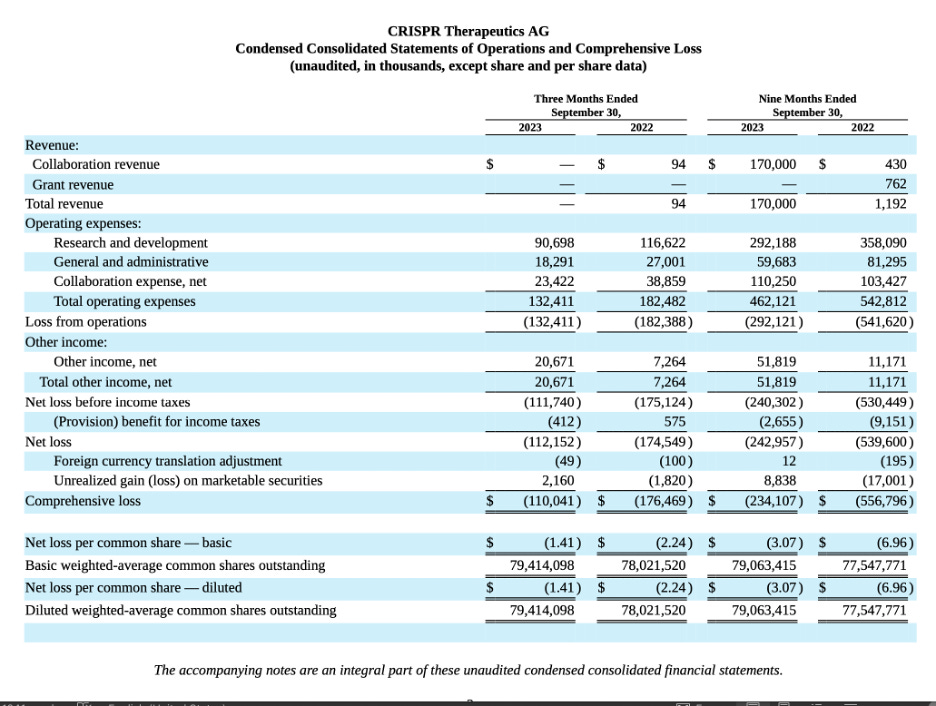Crispr Therapeutics: The Gene Editing Trailblazer In Business To Cure Diseases
This CRSP post was sent to CLUB/EDGE clients January 25th when CRSP was $63, before hitting $91 February 22nd. CRSP has been a long-recommended stock in both our #TREND and #SWING portfolios.
Biotech is not my wheelhouse. I review healthcare/pharma/bio stocks for clients in my live trading room every day. And I recommend those that are technically positioned for a directional move with duration and intensity - especially if they have a liquid options market. But I am no expert when it comes to studying the science, management and business operations or prospects of a biotech stock.
That is why I am so excited to be able to collaborate actively with our ‘resident doctor’ at LaDucTrading, who serves as our BioPharma dedicated contributor for CLUB/EDGE clients.
Alexander Kenton (MD, MBA, FAAP) started as a client over 3 years ago, then quickly upgraded from CLUB to EDGE to work more closely with our MacroAdvisor EDGE manager, Craig Shapiro. Alexander is an active trader and investor - not just of healthcare/pharma/biotech, but he has a unique ability to size up the future prospects of a biotech stock based on his ability to understand the science at the same time he is fundamentally able to size up the business operations and management skills to execute on their potential market.
As a result of his excellent shares in my trading room, and due diligence on many healthcare-related names, he has been early to notify us when a name looks exciting and also to warn when extended. He recently posted the below risk/reward assessment of continuing to stay long (or enter anew) CRSP, a name that he owns since last November at $45. He shared these insights, and many others, exclusively with our clients because he is wonderfully generous with gifted insights in this space.
About Alex:
Dr. Alex Kenton, MD, MBA, a Fellow of the American Board of Pediatrics and Board-certified in Pediatrics and Perinatal/Neonatal Medicine, obtained a Bachelor of Science in Biology from MIT, an MD from the University of Texas Galveston, and an MBA from Yale. Dr. Kenton completed postgraduate residency training in both Internal Medicine (certified until 2011) and Pediatrics at Christiana Care Medical Center in Delaware. Subsequently, Dr. Kenton pursued a Neonatology fellowship at Baylor College of Medicine.
Formerly serving as the medical director of a system of NICUs, Dr. Kenton transitioned to a staff neonatologist role in 2023 to follow a passion for investing and business. Dr. Kenton is actively engaged in investing and trading, having started part-time in 2016 and transitioning to full-time in 2022, with a primary focus on biotech investments.
Additionally, Dr. Kenton provides business consulting services to individual medical practices, offering expertise in staffing, budgeting, and financing. Currently, Dr. Kenton consults for two medical practices. Dr. Kenton also brings experience in hospital and political finances and administration, having previously served as Chief of Staff and held leadership roles in organizations such as the Texas Medical Association Political Action Committee and the Bexar County Legislative Committee.
CRSP Review
Summary: This company has finally brought a gene editing process/product to market to address two serious diseases. Their process is likely to be applied to a host of additional diseases which has the potential to be profitable. Their R and D and SGA costs remain significant but their ability to translate their science to therapies enables them to remain viable for the future. They currently share revenue with VRTX and they rely on VRTX for some of their cell supplies, but I believe they could be a take-over candidate in the future.
The Science
CAS9- the enzyme that cuts DNA and a guide RNA sequence which combined and targets the DNA target in question. The complex targets a DNA sequence directly next to the DNA sequence we need to correct. This Cas-9 RNA complex unwinds the DNA sequence that is just before the target and then allows the RNA sequence to bind with the DNA target. The Cas 9 then cuts the target DNA sequence creating a double strand break. The cells natural repair mechanisms come in to repair the sequence, sometimes this results in deletion of additional base pairs and deletion of the entire target sequence in question and inactivating the gene. In other cases, if one inserts a new DNA template, one can replace the original inherited faulty sequence with a new sequence and thus change a nutated gene to a fully repaired gene.
So again, the strategies are to use the CaAS-9 RNA complex to inactivate a faulty gene (easier to do) or replace the mutated sequence with a repaired sequence.
The approved therapy ( CASGEVY) for Sickle Cell Disease is to delete the sickle gene entirely ( this is an altered Beta chain in the Hemoglobin molecule that causes blood cells to get hard and stick together which causes thrombosis and pain and necrosis of limbs and organs in affected patients- this is called sickling) and allow production of the patients fetal hemoglobin and thus decrease sickling. This is a collaboration with VRTX.
Below is an illustration of how they do it. Notice they are targeting the same gene to delete it to target Beta Thalassemia and sickle cell. If you want more info on the molecular physiology behind that, hit me up. So same strategy and same gene targeted to address two diseases (Sickle Cell Disease and Beta Thalassemia)
They are now expanding this process to target other diseases.
Example: High LDL cholesterol. The LDL cholesterol is the “bad cholesterol associated with heart disease. They are targeting the enzyme in the liver that produces LDL. If they knock out the gene that makes the enzyme that makes LDL cholesterol, then they theoretically decrease heart disease. The illustration is below. This trial is in phase 1
Fighting Cancer, Diabetes & More
CRSPR is enhancing a strategy in which one alters the patient’s own immune cells to enhance them to fight cancer. The process is to remove T cells (cells that attack unhealthy cells and foreign cells) from a patient who has cancer . The reason cancer progresses is that the T cells recognize the cancer cells as normal host cells. The goal is to take the T cells from the patient and add a gene to the T cells which will create a receptor on the T cell which will bind to a specific protein on a cancer cell. The receptor on the T cell that is coded is called a chimeric antigen receptor (CAR). In addition, they have added additional gene targets which knock out receptors that would normally DEACTIVATE the T cell at the tumor site ( the tumor creates an environment that deactivates the immune mechanisms of the body. CRSPR has a process to alter the T cell to avoid these tumor strategies and thus make the tumor susceptible to the T cell. They are in phase 1 trials for lymphoma and renal cell carcinoma.
They also believe they can use this same alteration of T cells to alter the disease process of autoimmune diseases such as Systemic Lupus ( there are a range of diseases such as lupus when one’s own immune system attacks the body abnormally. Altering the immune cells through gene editing could be a cure). They plan on starting a trial for Lupus in 2024.
The other work happening now is to reverse type 1 diabetes. Type 1 diabetes is due to a lack of the pancreatic beta cells. These are the cells that produce insulin. CRSPR along with VRTX (who owns the hypo immune cell lines) is creating a new beta cell which will not be destroyed by the host’s immune system ( CRSPR is knocking out the genes that can express proteins that allow a host to recognize a cell as foreign. Thus ideally the host will accept a transfusion of beta cells and thus have a functioning insulin producing pancreas.
In summary, they are building on their established process and experience to expand the indications and uses of their technology. Given that they already have an approved process now for Sickle and Beta Thalassemia, they have credibility with the FDA to get other therapies approved.
Financial Highlights & M&A Prospects
Besides being a substantial player at this point in the gene editing field, I believe they may ultimately be acquired by VRTX. They have several financial agreements in place.
The therapy for sickle cell and Beta Thalassemia profits are shared in a 60/40 arrangement between VRTX and CRSP.
Under one of the agreements for diabetes, Vertex will pay CRISPR Therapeutics $100 million up-front for non-exclusive rights to CRISPR Therapeutics’ technology for the development of hypo immune gene-edited cell therapies for Type 1 diabetes. CRISPR Therapeutics will be eligible for up to an additional $230 million in research and development milestones and receive royalties on any future products resulting from this agreement. Basically, VRTX will have significant rights to the revenues and profits from the diabetes therapies.
In addition, the cells CRISPR uses for their research for diabetes is from Vacyte, a company recently acquired by VRTX. Thus, VRTX is very involved with CRSPR and I would not be surprised by an acquisition in the future by VRTX of CRSPR.
Here is their financial picture for the first 9 months of 2023… Note how revenue has jumped, mostly from the collaboration agreements for now. They will have plenty of cash to work with to develop these other therapy lines and they already have an established facility for their research and development of their cell lines and gene editing programs.
Competitors At A Glance & Summary
Competitors are behind in terms of bringing products to the approval level.
VRTX (both a collaborator and competitor)
EDIT for sickle cell And Beta Thalassemia (not close to approval)
EDIT oncology- not at clinical trial
VERV- gene editing for high cholesterol – only one product in phase 1 trial.
With that, I believe CRISPR is a company to invest in for the longer term - both from its ability to produce more therapeutic lines as well as its possible acquisition potential.
Disclaimer/Holdings
None of the above is financial advice or recommendation. These are my personal notes.
I cannot ensure accuracy and completeness of information. Please do your own due diligence.
I currently have positions in VRTX and CRSP but that can change at any time.


